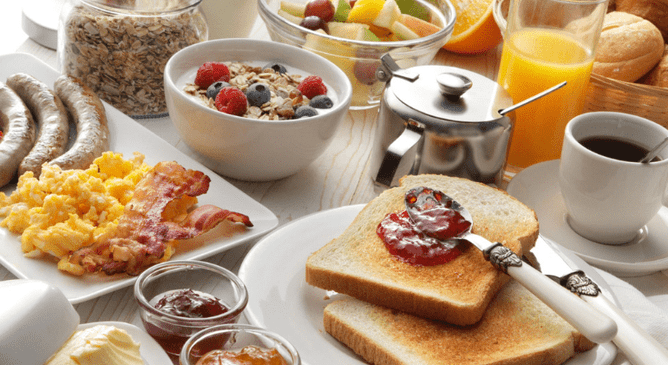Can you claim for that trip to Mcdonald's or for the sandwich you grabbed from the supermarket?
When you’re self-employed there are certain situations where you can claim food and drink as a business expense. However, there are a fair few HMRC rules to get your head around first.
You can’t claim for anything and everything eaten or drunk whilst working. The things you can claim for fit under three categories:
1. Subsistence
2. Marketing
3. Entertainment
1. Subsistence
‘Subsistence’ is the term HMRC gives to any food and drink expenses that arise out of necessity from a business perspective
HMRC’s meaning of ‘subsistence’ doesn’t include the food and drink you consume day in, day out while working.
To understand this it helps to look at HMRC’s ‘dual purpose’ rule. This basically says that if something is necessary for reasons that aren’t work related, it can’t be claimed as an expense; even if that thing also benefits you in a business sense.
As we need to eat and drink, the costs associated with what we eat and drink in our normal day-to-day working lives can’t be classed as allowable business expenses.
It’s a bit different when travel is involved.
Ok, so I’m not talking about If you travel to clients as part of your regular routine. In that instance, any lunch or drinks that you may buy on the way are not allowable.
HMRC allows you to can claim food and drink bought on a business trip as an expense. A ‘business trip’ will be something that you don’t regularly do. It might include an overnight stay& it will certainly include travel away from your place of work (so not just down the road!). As this is for a business purpose, this kind of expenditure is considered to be ‘wholly and exclusively’ for business so is allowable. Despite the fact that you need food and drink to survive, HMRC is happy in the knowledge that you’re only buying that particular meal in that particular place because you’re on a business trip. If you buy food and drink whilst travelling for business, then it must be reasonable and you should be able to prove this.
A ‘normal place of work’& a ‘temporary’ place of work:
It’s necessary to understand the difference between HMRC’s definitions for a ‘normal place of work’ and a ‘temporary place of work’. This is because, any food or drink you buy on the way to or from a ‘normal place of work’ isn’t claimable. It’s different if you buy food or drink on the way to/ from a ‘temporary place of work’, as this is allowable.
HMRC’s rules about whether a workplace is permanent or temporary can be complex. HMRC says that if a period of continuous work lasts more than 24 months at a workplace (such as a client site), that workplace isn’t temporary and you can’t claim for any expenses incurred. A period of continuous work means 40% or more of your time.
Likewise, if attendance at a workplace follows a ‘pattern’ – for instance, you must attend the workplace on the same day each week for more than 24 months – then HMRC may decide the workplace is permanent and no expenses can be claimed.
Therefore, if you spend more than 40% of your time at a client’s site, you can only claim expenses, subsistence and tax relief for a period of 24 months. After 24 months, or when you become aware you’ll be spending more than 24 months at a client’s site, your workplace is permanent and you can no longer claim expenses.
2. Marketing
You can however, run a ‘marketing event’ for your business. This could involve food and drink and still be allowable, but there are other factors that need to be met.
For instance, you could run a workshop to promote your services& the food/ drink costs would be claimable.This event must be free to those that attend though.The sole aim for this event should be to attract new business.
It’s also critical to note that the event should offer something other than just food and drink, as otherwise it might be classed as entertainment. This could include a demonstration of a product or a talk from a key speaker.
3. Entertainment
The rules that fall under ‘entertainment’ for food and drink aren’t straightforward either.
Despite what’s often believed – the cost of entertaining clients in a ‘wining and dining’ sense isn’t an allowable expense. In other words, you can’t take a business associate or client out to dinner and claim the bill as an expense.
Employee entertaining is different. Employee entertainment costs commonly include - but are not limited to - food, drink, entertainment, venue hire, transport and overnight accommodation.Employee entertaining costs are usually treated as an allowable business expense and are tax deductible.

